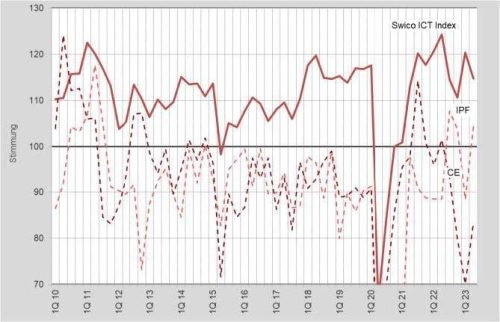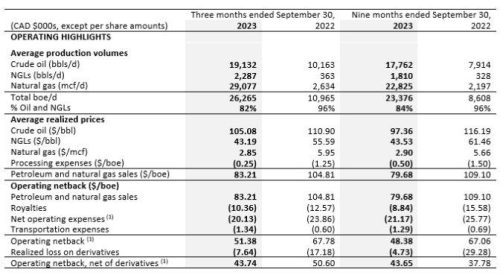
Regulations in Crypto Mining: Necessary Control or Innovation Hindrance?
Understanding Crypto Mining Regulations
Crypto mining regulations are rules set by governments and organizations to oversee the mining of cryptocurrencies. These regulations can vary widely from one country to another. They aim to address several key areas:
- Environmental Impact: Mining operations consume a lot of energy. Regulations often focus on reducing the carbon footprint.
- Financial Security: Rules are in place to prevent money laundering and other illegal financial activities.
- Market Stability: Regulations help maintain a stable market by preventing fraudulent schemes and ensuring fair competition.
- Consumer Protection: Ensuring that investors and users are protected from scams and frauds.
Understanding these regulations is crucial for anyone involved in crypto mining. They not only affect how mining operations are conducted but also influence the overall growth and acceptance of cryptocurrencies.
The Pros of Crypto Mining Regulations
Crypto mining regulations offer several benefits that can positively impact the industry and society. Here are some of the key advantages:
- Environmental Protection: Regulations can enforce the use of renewable energy sources, reducing the environmental impact of mining operations.
- Market Integrity: By preventing fraudulent activities and ensuring fair competition, regulations help maintain a stable and trustworthy market.
- Consumer Confidence: Clear rules and protections can increase consumer trust in cryptocurrencies, encouraging more people to invest and participate.
- Legal Clarity: Regulations provide a clear legal framework, making it easier for businesses to operate and comply with the law.
- Innovation Encouragement: Well-designed regulations can foster innovation by setting standards that drive technological advancements and efficiency.
These benefits highlight the importance of having a regulatory framework in place. They ensure that the crypto mining industry can grow sustainably and responsibly.
The Cons of Crypto Mining Regulations
While crypto mining regulations offer many benefits, they also come with several drawbacks. Here are some of the main disadvantages:
- Innovation Hindrance: Strict regulations can stifle innovation by creating barriers for new and small players in the market.
- Increased Costs: Compliance with regulations often requires significant financial investment, which can be burdensome for smaller mining operations.
- Bureaucratic Delays: Regulatory processes can be slow and cumbersome, delaying the implementation of new technologies and practices.
- Geographical Disparities: Different countries have different regulations, leading to an uneven playing field and potential relocation of mining operations to less regulated regions.
- Overregulation Risks: Excessive regulation can lead to a lack of flexibility, making it difficult for the industry to adapt to rapid technological changes.
These cons highlight the challenges that come with regulating the crypto mining industry. Balancing regulation and innovation is crucial to ensure that the industry can thrive while addressing key concerns.
Global Perspectives on Crypto Mining Regulations
Crypto mining regulations vary significantly across the globe, reflecting different governmental approaches and priorities. Here are some notable perspectives from various regions:
- United States: The U.S. has a mixed approach, with federal guidelines complemented by state-specific regulations. States like New York have imposed strict environmental standards, while others like Texas offer a more lenient regulatory environment.
- China: China has taken a stringent stance, banning crypto mining activities due to concerns over energy consumption and financial risks. This has led to a significant shift of mining operations to other countries.
- European Union: The EU focuses on sustainable practices, pushing for regulations that promote the use of renewable energy in mining operations. The EU also emphasizes consumer protection and financial transparency.
- Canada: Canada offers a favorable environment for crypto mining, with its abundant renewable energy resources and supportive regulatory framework. This has attracted many mining companies to set up operations in the country.
- El Salvador: El Salvador has embraced cryptocurrencies, even making Bitcoin legal tender. The country is exploring innovative ways to integrate crypto mining into its economy, including the use of geothermal energy from volcanoes.
These global perspectives highlight the diverse approaches to crypto mining regulations. Understanding these differences is crucial for anyone involved in the industry, as they can impact where and how mining operations are conducted.
Balancing Regulation and Innovation
Finding the right balance between regulation and innovation in crypto mining is crucial. Overregulation can stifle creativity and growth, while underregulation can lead to environmental harm and financial risks. Here are some strategies to achieve this balance:
- Flexible Regulations: Implementing adaptable rules that can evolve with technological advancements helps maintain a dynamic and innovative industry.
- Incentivizing Green Practices: Offering incentives for using renewable energy sources can promote sustainable mining without imposing strict mandates.
- Public-Private Partnerships: Collaboration between governments and industry leaders can lead to the development of practical and effective regulations.
- Clear Guidelines: Providing clear and transparent guidelines helps businesses understand and comply with regulations, reducing the risk of non-compliance.
- Stakeholder Engagement: Involving all stakeholders, including miners, regulators, and consumers, in the regulatory process ensures that diverse perspectives are considered.
Balancing regulation and innovation requires a nuanced approach. By focusing on flexible, incentive-based, and collaborative strategies, it is possible to create a regulatory environment that supports both growth and responsibility in the crypto mining industry.
Conclusion
In conclusion, crypto mining regulations play a vital role in shaping the future of the industry. They offer numerous benefits, such as environmental protection, market integrity, and consumer confidence. However, they also present challenges, including potential innovation hindrance and increased operational costs.
Global perspectives on crypto mining regulations vary, reflecting different priorities and approaches. Understanding these differences is essential for navigating the complex regulatory landscape. Achieving a balance between regulation and innovation is crucial for fostering a sustainable and dynamic crypto mining industry.
By implementing flexible regulations, incentivizing green practices, and encouraging public-private partnerships, it is possible to create a regulatory framework that supports both growth and responsibility. This balanced approach ensures that the crypto mining industry can continue to thrive while addressing key concerns and challenges.
Die Provimedia GmbH ist ein Online-Verlag mit Sitz in der Region Stuttgart. Wir schaffen wertvolle Informationen in unterschiedlichen Branchen um Wissen schnell und einfach zugänglich zu machen. Wir haben uns auf übersichtliche Webseiten und Auffindbarkeit von Informationen spezialisiert.
Provimedia GmbH
Weidenweg 12
74321 Bietigheim-Bissingen
Telefon: +49 (7142) 3442727
Telefax: +49 (7142) 2279985
http://provimedia.de
CEO
Telefon: +49 (7142) 3442727
E-Mail: info@provimedia.de
![]()





